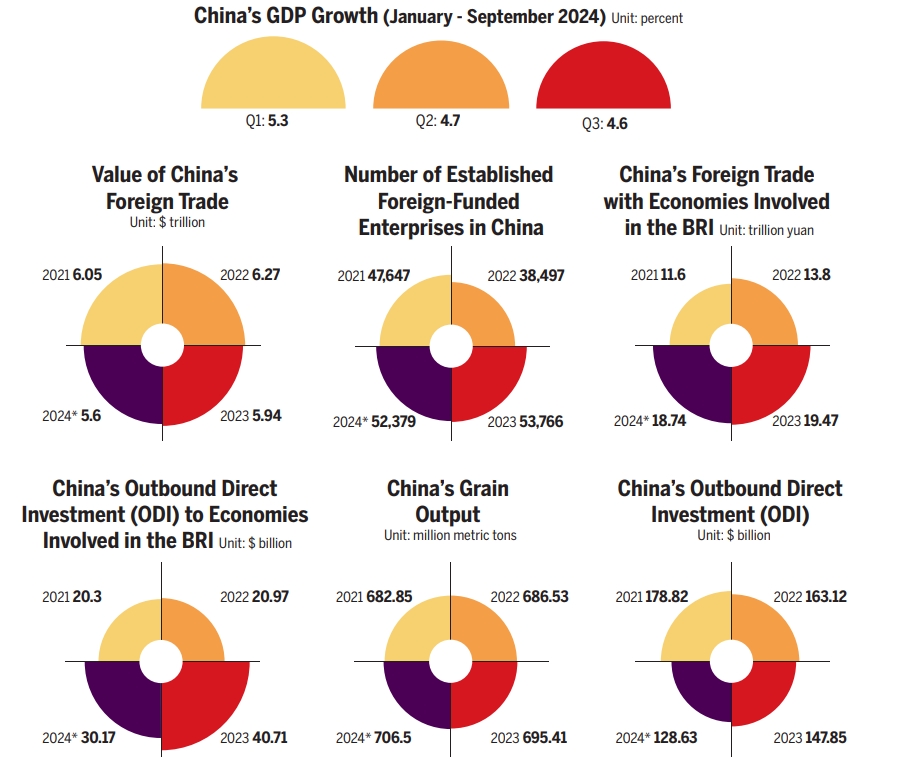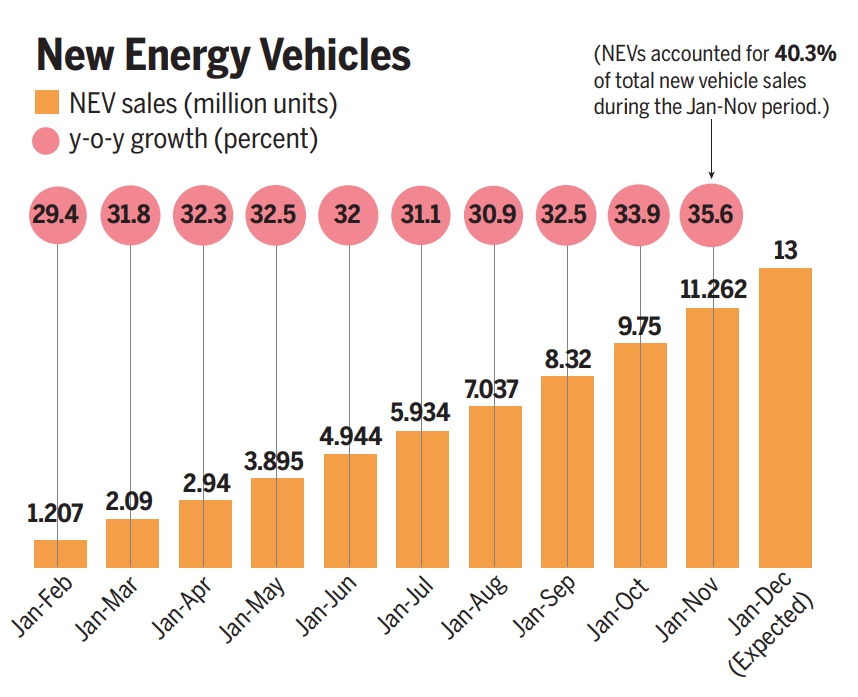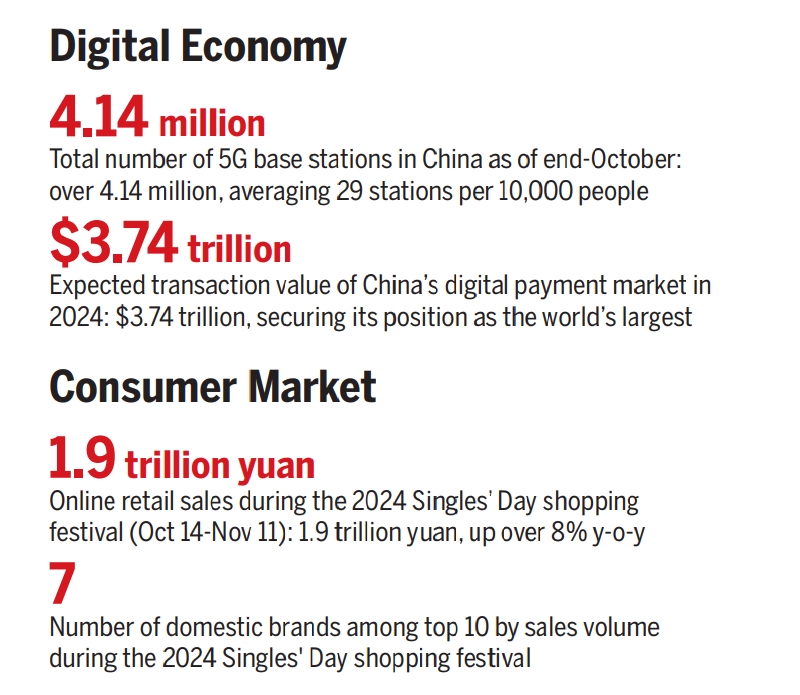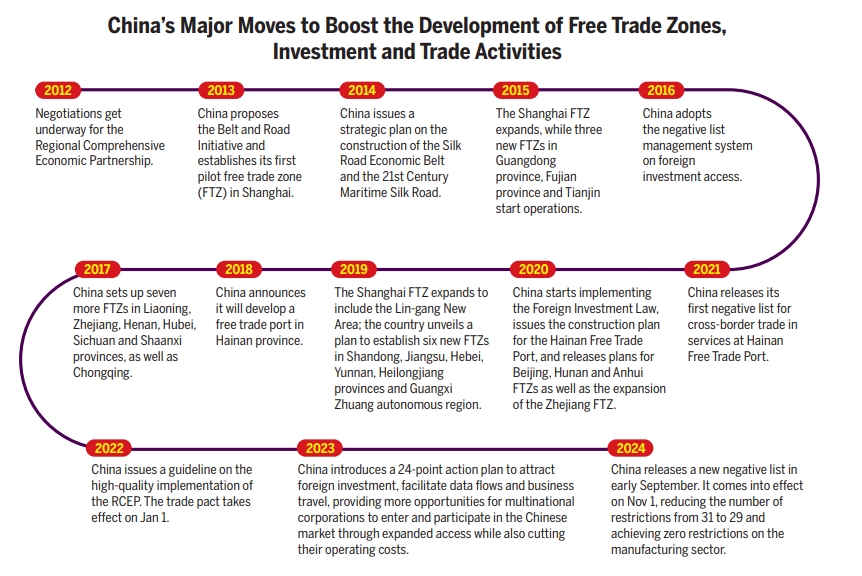Efforts in opening-up, innovation to inject impetus into business
China's role in global supply chains seen as key to its resilient economic growth


China's resilient economic growth, coupled with its optimized foreign trade structure and an evolving business environment for multinational corporations, will stimulate dynamic business flows both for its own advancement and across global markets in 2025, said economists and corporate executives.

With its commitment to opening up further and fostering innovation, China is not only positioning itself as a linchpin in global supply chains, but also as an attractive destination for investment and strategic expansion, they said.
This evolving landscape promises to generate new avenues for business growth, particularly as China continues to adapt its policies to meet the needs of a changing global economy, said Chen Wenling, chief economist at the Beijing-based China Center for International Economic Exchanges.

Despite challenges at home and abroad, China's GDP grew by 4.8 percent year-on-year in the first three quarters of last year. The annual economic growth target for 2024 is around 5 percent, said the National Bureau of Statistics.
Ji Mo, chief China economist of DBS Group Research, said the government's robust policy measures introduced since September — such as interest rate cuts and increased public spending — will help sustain a 5 percent growth rate for the Chinese economy in 2024.
Policymakers are focused not only on addressing immediate challenges, but also on laying the groundwork for sustained long-term growth, Ji said.

Supported by favorable global demand and ongoing domestic industrial upgrade, China's foreign trade expanded by 4.9 percent year-on-year to 39.79 trillion yuan ($5.45 trillion) in the January-November period, with exports up 6.7 percent at 23.04 trillion yuan, said the General Administration of Customs.
Lyu Daliang, director of the administration's department of statistics and analysis, said China is capable of achieving the full-year foreign trade goal of improved quality and stable volume.
The country has turned the challenges of deglobalization into a catalyst for industrial upgrading, leveraging its resilience and innovation in recent years. It has cultivated a diversified market and forged broader partnerships, said Sang Baichuan, dean of the University of International Business and Economics' Institute of International Economy.
Similar views were expressed by Arnold Li, senior vice-president of Ingersoll Rand Inc, a United States-based industrial products manufacturer. Li said that from the supply of raw materials to the consumer goods market, China offers not only high-quality products, but also a comprehensive, systematic solution with distinct advantages.

These initiatives have also led to an influx of global companies boosting their investments in high-end manufacturing, services trade and innovative industries within the country, said Li.
Highlighting that Chinese consumers exhibit a strong preference for innovative products, Hubert de Haan, senior vice-president for China at BSH Home Appliances Group — a German manufacturer with more than 10,000 employees in China — said that his company will fully capitalize on this market opportunity by placing a greater focus on research and development within China.
"By adopting the localization strategy, we can better cater to the growing demand from Chinese consumers for more advanced home appliances, thereby strengthening the foundation for our future growth," he said.
zhongnan@chinadaily.com.cn


















